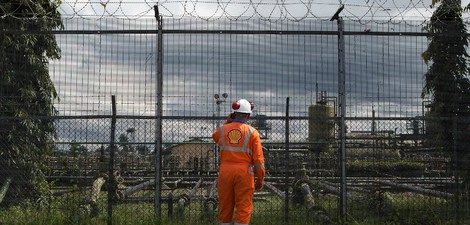Your podcast discovery platform
Curious minds select the most fascinating podcasts from around the world. Discover hand-piqd audio recommendations on your favorite topics.

piqer for: Global finds
Ciku Kimeria is a Kenyan author "Of goats and poisoned oranges" - (https://www.amazon.com/goats-poisoned-oranges-Ciku-Kimeria-ebook/dp/B00HBBWPI6), development consultant, adventurer and travel blogger (www.thekenyanexplorer.com). She writes both fiction and non-fiction focusing on African stories that need telling. She has worked on diverse pieces for various international and local publications including Quartz, Ozy, The East African etc. She has travelled to 45 countries – 16 of them in Africa. 153 countries to go and 63 territories!
"Of goats and poisoned oranges" has been extremely well received in Kenya and beyond. It tells the story of a Kenyan middle aged power couple and their complicated marriage. The novel explores issues of greed, revenge, betrayal and murder. It runs from the 1960s to 2013. It has been described as “Wicked, funny, poignant, wacky, human, a big ball of fun and danger”, “A unique and captivating book”, “Fun and intriguing”, “Impossible to put down once you start reading.”
She recently moved to Dakar, Senegal from Kenya to work on her second novel. She also works at as the Africa Communication Manager at a leading global strategy consulting firm.
She holds a B.S. in Management Science from MIT with minors in Urban Planning and International development studies.
Shell Caught In A $1bn Bribery Scandal In Nigeria For Rights To A Giant Oil Field
Shell is not new to controversy — especially in Nigeria. Once the reader understands the plight of the Ogoni people whose lands were subjected to decades of extreme environmental degradation, whose livelihoods were completely lost at the hands of Shell (in collaboration with an oppressive military regime of Sani Abacha in the 90s) that resulted in the torture and brutal killing of Ken Saro-wiwa and 8 other Ogoni men who had led peaceful protests against Shell's destruction of their land, then this current revelation of further unethical practices in Nigeria by Shell is not the least bit surprising.
In this particular instance, leaked emails and recorded phone conversations reveal that in 2011, Shell was complicit in the disappearance of over $1bn that it paid to the Nigerian government for rights to a giant oil field off the Nigerian coast. This particular oil field, known as OPL 245, is valued at $500bn in today's prices. If it is indeed true that only $300 million made it to the public coffers for this massive deal, this averages out to each of Nigeria's 186 million people getting $1.61 per person for the sale of one of the continent's most valuable oil fields.
In a continent that loses up to ten times as much money to illicit financial flows as it gains from foreign aid, this particular case reveals a very worrying trend. Foreign companies in the continent are not holding themselves up to the global standards they claim to adhere to.
22 years after the hanging of Ken Saro-wiwa and eight other Ogoni men in a prison yard in Southern Nigeria, perhaps not much has changed. The US's recent repeal of anti-corruption rules for extractive companies will only make it easier for extractive firms to conduct business unethically on the African continent and elsewhere.
